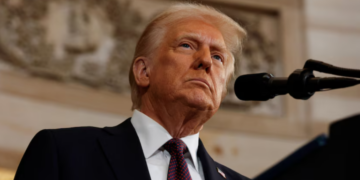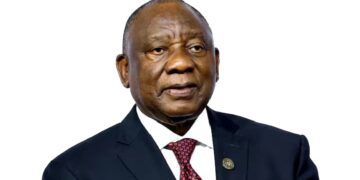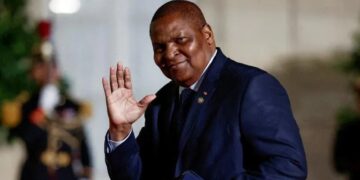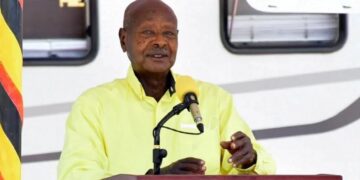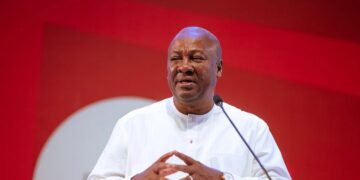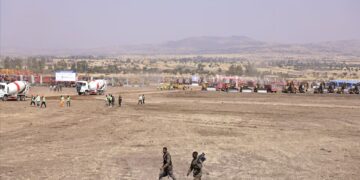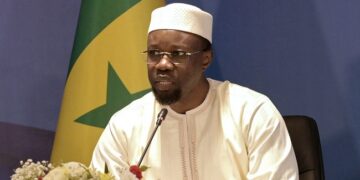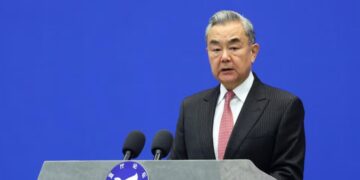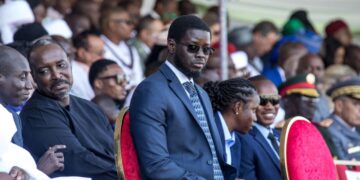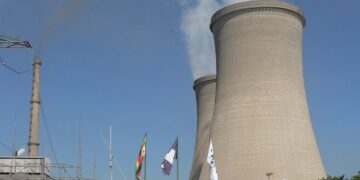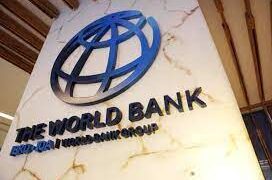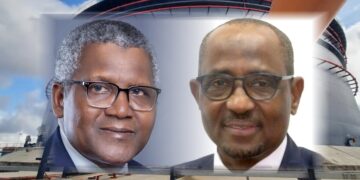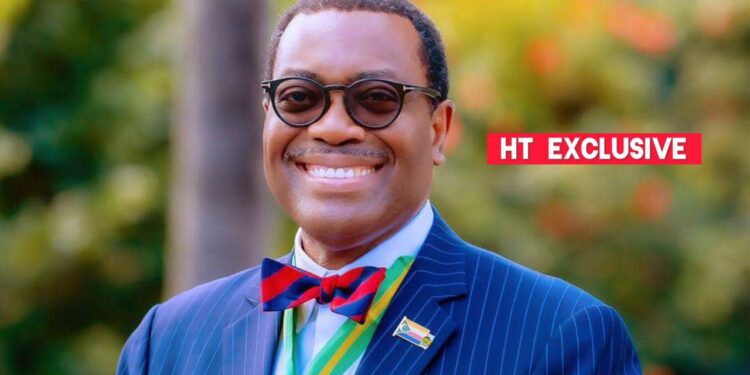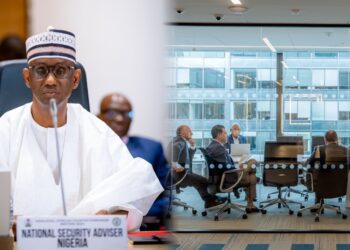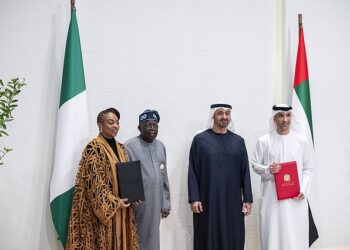By Enyichukwu Enemanna
In line with Article 36 of the Agreement Establishing the African Development Bank (AfDB), its highest decision-making body, the Board of Governors comprising nominees from member nations will, from May 26–30, converge in Abidjan, Côte d’Ivoire for the Board’s Annual General Meeting (AGM), where a new President of the pan-African bank will also be elected, precisely on May 29.
This therefore signals the end of an overwhelmingly successful ten-year tenure of Nigeria’s Akinwumi Adesina, who had barely stepped down as the country’s Minister of Agriculture under former President Goodluck Jonathan in 2015 when he was chosen to serve at the continental level. This shows that while serving as Minister in Abuja, he effectively marketed himself through sterling performance and several firsts, including the introduction of the e-wallet system, an initiative that played a key role in boosting agricultural productivity for millions of Nigerian farmers.
His election to lead AfDB on 28 May 2015, and assumption of office on 1 September 2015, culminated in visible transformation in the continent’s infrastructural landscape, which again earned him a renewed five-year term in 2020, an opportunity he has not just utilised to raise the profile of the erstwhile little-known AfDB, but also demonstrated that his country Nigeria is not called the “Giant of Africa” for no reason, but is a land blessed with innate potential to champion inclusive and sustainable development across the continent.
Shortly after his election as the 8th President of the Bank, Dr Adesina identified five key areas seen as very critical to the challenges facing Africa. These he tagged the “High5”, targeting to Light Up and Power Africa, Feed Africa, Industrialise Africa, Integrate Africa, and Improve Life Quality. These pillars clearly stood as a vehicle towards actualising the United Nations Sustainable Development Goals (SDGs).
The initiative was also in sync with efforts to build on the Bank’s existing Ten Years Strategy (TYS) covering 2013–2022, which aims to drive inclusive growth and energy transition through five operational priorities, including infrastructure development, regional economic integration, private sector development, governance and accountability, and skills and technology. Additionally, the TYS highlights three areas of special emphasis — gender, fragile states, and agriculture and food security.
Mission 300
In an effort to improve electricity infrastructure, power more small and medium-scale businesses and create wealth, AfDB under Adesina launched an ambitious Mission 300 initiative, seeking to connect 300 million Africans to reliable electricity between 2024–2030. With the partnership of the World Bank, the project has continued to attract goodwill from key stakeholders, especially member countries and donor agencies.
With an estimated cost of $90 billion, the World Bank and AfDB have jointly committed a whopping $48 billion, while additional funding is expected to come from multilateral development banks, development agencies, private businesses and philanthropic organisations such as the Rockefeller Foundation, which, according to AfDB, is also part of the Mission 300 initiative.
As at January this year, the initiative had won over $8 billion in pledges from lenders, including the Islamic Development Bank and the Asia Infrastructure Investment Bank. AfDB also named others funding the project to include the French Development Agency (AFD), which committed to provide 1 billion euros ($1.04 billion), and the OPEC Fund for International Development, which made an initial commitment of $1 billion.
“Provision of 300 million people with access to electricity, half of those currently without power on the continent, is a crucial building block for boosting Africa’s development by creating new jobs”, the World Bank President Ajay Banga said during Africa Energy Summit in Dar es Salaam, Tanzania earlier in the year.
“Apart from lighting up homes and businesses, Mission 300 is expected to boost the provision of clean cooking energy to homes, cutting reliance on wood and charcoal which are harmful”, Tanzania’s President, Samia Suluhu Hassan stated while backing the initiative.
The Bank this year also facilitated a $200 million energy deal between Nigeria and WeLight, a pan-African Distributed Renewable Energy (DRE) company, to deploy hundreds of renewable mini grids, aiming to bring reliable electricity to millions in rural communities and those surrounding urban centres. This is of significant value to Nigeria as Africa’s most populous country seeks to increase the renewable energy share of its electricity mix from 22% to 50%. The project is developing 400 mini grids and 50 MetroGrids across Nigeria’s rural communities to improve electricity access for between 1.5 to 2 million people, boost local economies, and lift residents out of poverty.
Targeted Economic Response to COVID-19
When the world was nearly brought to its knees as a result of the global pandemic in 2019–20, Adesina and his team came through for Africa by launching numerous mitigative programmes, including the COVID-19 Response Facility (CRF) launched in April 2020. Through this initiative, the sum of $10 billion was provided as a Response Facility to help member countries fight the pandemic and reduce its devastating economic impact.
“These are extraordinary times, and we must take bold and decisive actions to save and protect millions of lives in Africa. We are in a race to save lives. No country will be left behind,” Adesina reassured at that time. True to his assurance, equitable distribution of the funds reflected a broader inclusion. While $5.5 billion was deployed for sovereign operations in AfDB member countries, the sum of $3.1 billion went to non-sovereign operations (private sector) while the rest was for regional operations and special initiatives.
The Bank also provided emergency budget support to help countries manage the fiscal stress caused by dwindling revenues and rising health expenditures. Under this intervention, Nigeria received $288.5 million in budget support, Ethiopia $165 million, while Senegal got €88 million.
It also committed funds to improve healthcare infrastructure and systems across the continent, supported social protection programmes, and ensured macroeconomic stability in order to prevent escalation in the poverty rate. This is in addition to the provision of liquidity and trade finance support to help African SMEs survive the difficult times. AfDB also fostered partnerships with regional development finance institutions to keep businesses afloat, especially those involved in the food and health sectors.
“The African Development Bank Group is deploying its full weight of emergency response support to assist Africa at this critical time. We must protect lives,” the AfDB chief stated again. He matched his words with action when he launched a record-breaking $3 billion Fight COVID-19 Social Bond, the world’s largest US dollar-denominated social bond ever on the international capital market. Also in 2020, the Bank’s Board of Directors approved a $2 million grant for the now-defunct World Health Organization, aiming to upscale its efforts on the continent.
Support on Establishment, Implementation of AfCFTA
The Bank also played a pivotal role towards setting up and implementing the continental trade pact, the African Continental Free Trade Area (AfCFTA), an economic cooperation which links all 55 member states of the African Union, covering a market of more than 1.3 billion people, aiming to unlock the power of joint efforts.
The Bank, apart from providing technical and institutional support towards the establishment of AfCFTA, also offered financial assistance and mustered regional integration to make the Agreement a reality. It signed a Protocol of Agreement for an $11.24 million support package to enhance the effective implementation of the AfCFTA Secretariat in Ghana, which first opened its operational doors in Accra on 17 August 2020. It was targeted at promoting sustainable intra-Africa trade and augmenting the number of participating African member countries.
“The African Development Bank is proud of the strong partnership with the AfCFTA Secretariat and confident that this institutional support will help support our respective mandates to spur greater continental trade and economic transformation, in line with Agenda 2063’s vision of the Africa we want,” the Bank’s Vice President for Regional Development, Integration and Business Delivery, Yacine Fal said in 2022 when the grant was approved.
The AfDB, under the focused leadership of Dr Adesina, has championed the frontiers in boosting policy alignment and regional integration efforts to support the success of AfCFTA. Of particular interest in the campaign is encouraging member states to harmonise their trade policies, implement regional infrastructure projects, and promote the free flow of goods, services, and people within the AfCFTA framework.
The AfDB has actively promoted the AfCFTA and its potential benefits to a wider audience, including policymakers, private sector stakeholders, and the general public. This includes organising high-level ministerial roundtables, engaging with international partners, and disseminating information about the AfCFTA’s transformative potential.
Women’s empowerment in Africa is gradually becoming a deliberate policy action both in public and private institutions. This is anchored on the huge role women play in building the economy, especially in the small and medium-scale sub-sector. Adesina has, through the Bank’s Affirmative Finance Action for Women in Africa (AFAWA), further bridged the gender gap in access to finance and economic activities, aiming to lift the entrepreneurial capacity of the African woman.
Through this programme, a $50 million financing agreement was reached to provide business support to women-led enterprises. The $50 million loan portfolio is provided through de-risking and technical assistance measures. These transformational leadership milestones have not only been noticed but recognised. In 2024, Adesina received the inaugural “African of the Decade” award, which he won alongside another Nigerian, Ademola Lookman, a football star, in recognition of their contributions to placing Africa on the global map.
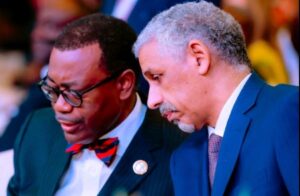
Who Succeeds Adesina?
As the campaign mounts for the presidency of the Bank, it is pertinent to think and act “sustainability”. This implies building on the gigantic records already being set, choosing a 9th AfDB President who understands building on legacy and not tearing down. A slip in successor choice could undermine these efforts to advance the frontiers of African development, and lack of sustainability has been the bane of development in most African states.
One candidate, however, who stands out among the contestants is Dr Sidi Ould Tah, a Mauritanian national who has played in Africa’s financial sector for the past four decades, having started his career in 1984 as an expert at the Mauritanian Bank for Development and Commerce (BMDC).
Dr Tah’s career progression has seen him serve in different capacities within and outside Mauritania, including holding the position of advisor to both the President and the Prime Minister respectively (2006–2008). In July 2008, he was nominated Minister of Economy and Finance. From 2008, he held the position of Minister of Economic Affairs and Development until his appointment as President of the Arab Bank for Economic Development in Africa (BADEA), leading the $20bn bank for a decade until April.
Dr. Tah is coming with a practical transformational experience garnered in Africa’s top tier finance in over 40 years, and has a track record of commitment to pan-African vision, driving a more united, more integrated, and more sovereign Africa. Without any shadow of doubt Dr. Tah is a perfect fit for Adesina’s successor for the purpose of continuity.







